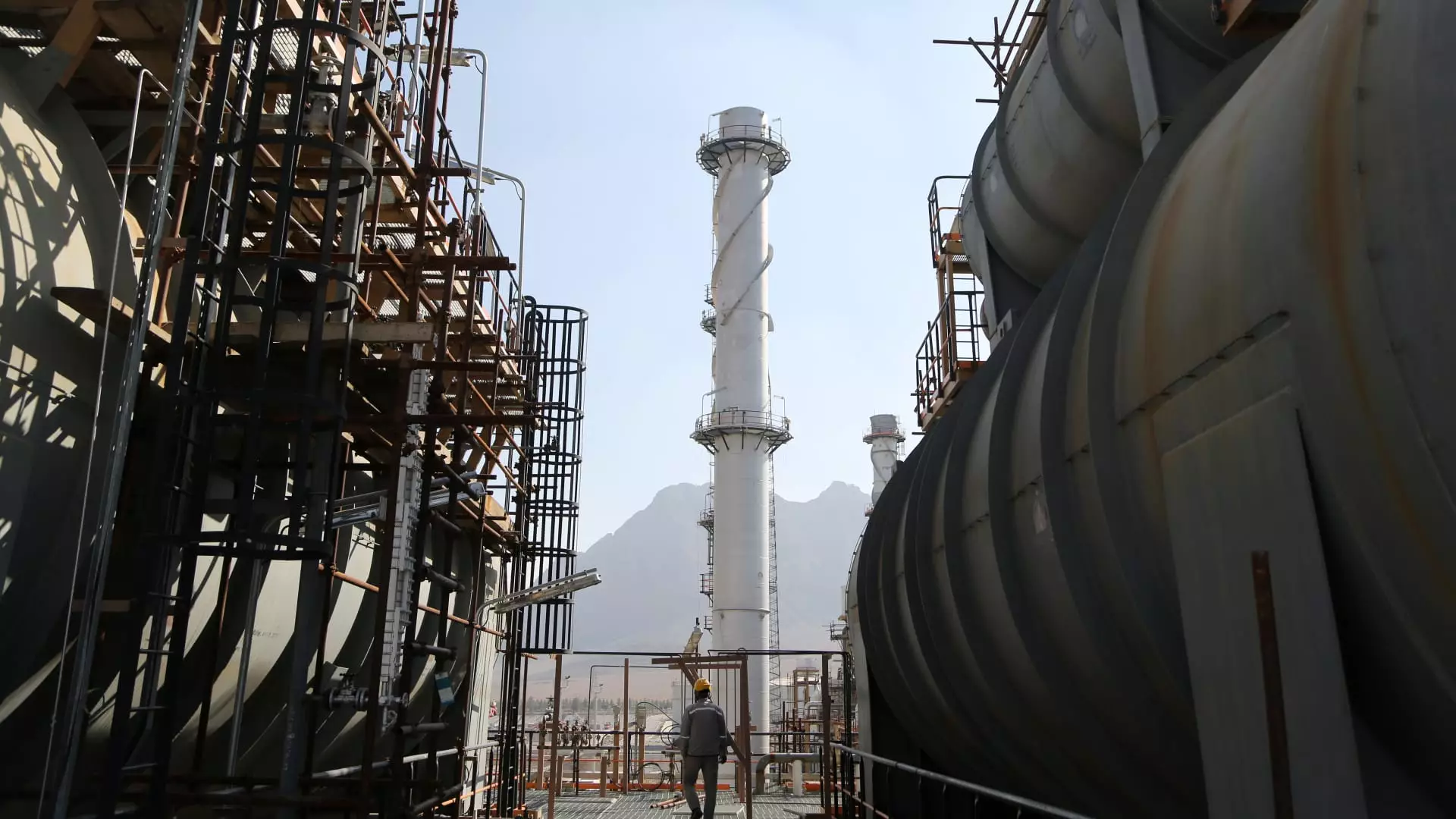Recent escalations in the Middle East, particularly following Iran’s ballistic missile attack on Israel, have raised alarms among oil market stakeholders. As geopolitical conflicts intensify, particularly between Israel and Iran, analysts are now positing that these developments could pose a serious threat to global crude oil supplies. This ongoing conflict highlights the intricate ties between international relations and energy markets, whereby regional strife translates directly into economic uncertainty for oil-dependent economies around the world.
On Tuesday, Iran launched missiles in apparent retaliation for Israel’s recent military actions against prominent figures in Hezbollah and Iranian leadership. This striking move has the potential to escalate hostilities further, prompting analysts to consider the implications for global oil production seriously. Saul Kavonic, a senior energy analyst, expressed that the situation has evolved into a “material disruption” phase, where up to 4% of the global oil supply may be jeopardized.
The geopolitical landscape has previously shown signs of fatigue regarding oil supply disruptions, often leading traders to overlook potential risks. However, with direct threats emerging from Iran, the balance appears to be shifting unpredictably—a concern emphasized by Kavonic as he suggests that oil prices could again reach the ominous $100 per barrel threshold if this trajectory continues.
The missile attack coincided with Israel’s aggressive military operation in Southern Lebanon, targeting Hezbollah forces. Notably, despite the missile onslaught, Israeli defenses managed to intercept most projectiles, averting casualties on their side. Nevertheless, the market’s response to the increasing hostilities was immediate and pronounced. Following the missile strike, oil prices surged over 5% within a trading session before settling to a 2% increase. This reflects the market’s sensitivity to evolving geopolitical tensions that could disrupt supply channels.
As of now, oil benchmarks like Brent and West Texas Intermediate have exhibited considerable fluctuations, reaching $74.62 and $70.95 per barrel, respectively. This volatile environment signals a war phase that deeply intertwines military action with energy supplies. Bob McNally, president of Rapidan Energy Group, predicts that Israel’s response to Iran’s missile strike will be “disproportionately large,” thereby exacerbating the existing fragile state of oil markets.
While the immediate impact on oil prices and supply is apparent, the broader implications of this conflict may stretch far beyond the short term. Historically, armed conflicts in the Middle East have often led to prolonged periods of uncertainty in global energy markets. This time, with Iran being the third-largest OPEC producer, generating close to 4 million barrels of oil daily, any disruption could reverberate worldwide, impacting economies dependent on oil imports.
Andy Lipow, president of Lipow Oil Associates, notes that albeit the recent disruptions have so far been minimal, overall oil market dynamics are still subject to pressure from both increased U.S. production and weaker demand emanating from China. The intricate web of supply and demand further complicates an already tense situation, pointing to a multifaceted crisis looming on the horizon.
Experts are beginning to broaden their analysis of the potential fallout from these hostilities. Ross Schaap from GeoQuant observed a significant spike in their risk model following the missile attacks, suggesting that “much bigger events” are expected. This indicates a disturbing trajectory toward further escalation—potential strikes on Iranian oil infrastructure could be on the table, with analysts like Josh Young noting the substantial risks that such moves pose.
If Iranian oil exports were forcibly curtailed due to military engagements, projections suggest that oil prices might soar above the psychologically significant $100 per barrel. Such a scenario, if fully realized, would not only have immediate impacts on fuel prices but could also ignite inflation and economic instability in various nations reliant on energy imports.
The intricate connections between geopolitical events and energy markets cannot be overstated. As tensions in the Middle East continue to escalate, the global oil landscape may shift dramatically, bringing forth significant repercussions not just for oil prices but for the broader economic environment. Stakeholders must remain vigilant, monitoring developments closely, as the volatile interplay of conflict and supply dynamics unfolds in real-time. The ensuing days and weeks will likely be critical in determining the trajectory of not just oil prices, but global economic stability.


Leave a Reply